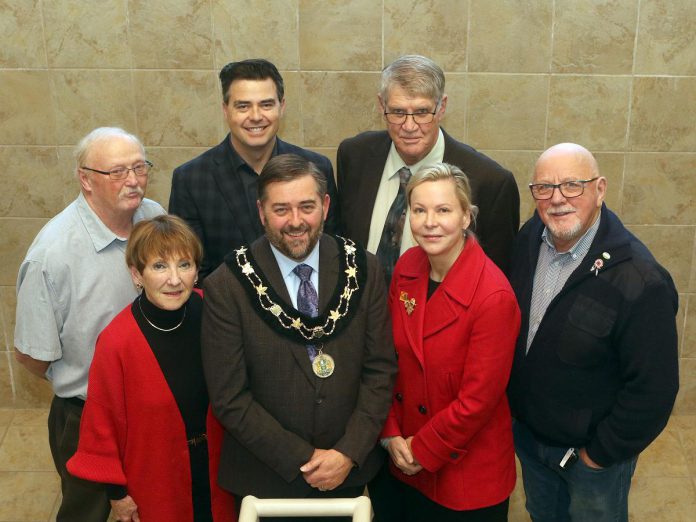
The mayors of four municipalities in Northumberland County — the Town of Cobourg, the Municipality of Port Hope, the Municipality of Brighton, and the Municipality of Trent Hills — will be given “strong mayor powers” as part of a recently announced Ontario government proposal.
The provincial government is proposing an expansion of strong mayor powers — beyond the 47 municipalities that currently have them — to also include the heads of council in 169 additional municipalities effective May 1. The proposal was posted on Ontario’s Regulatory Registry on April 9 and is open for comments until Wednesday (April 16).
Three other smaller municipalities in the Kawarthas region that are also receiving strong mayor powers are the Town of Bancroft, Municipality of Hastings Highlands, and Township of Minden Hills.
In a media release, the province describes the reason for the proposed expansion is “to help deliver on provincial priorities, such as building more homes, transit and other infrastructure across Ontario.”
The strong mayor powers would allow heads of council of single and lower-tier municipalities with councils of six members or more to support shared provincial-municipal priorities, such as encouraging the approval of new housing and constructing and maintaining infrastructure to support housing, including roads and transit.
Among other powers, mayors can propose certain municipal by-laws if they believe that the by-laws could potentially advance a provincial priority identified in regulation. Council can then pass those by-laws if more than one-third of all council members vote in favour — a departure from the usual majority vote required to pass a by-law.
In Northumberland County, those at the helm of council in four of the county’s seven municipalities would receive strong mayor powers. While three of those four mayors have different reactions to the news, all say using strong mayor powers wouldn’t be a decision made hastily, and in one case, if at all.
“I have been a strong supporter of council and staff collaboration as we drive policy forward in the municipality — that will not change,” Municipality of Brighton Mayor Brian Ostrander told kawarthaNOW.
“I am discussing these new powers with staff to get a sense of what it all means, but I don’t see much changing for Brighton. We have a seven-person council that has been effective at moving development forward and advancing public policy for our community.”
“However, I’m certainly not one to throw away tools that have been granted to the municipality just because I don’t see a good use for them today,” Ostrander added. “I respect the province’s willingness to advance these new rules to smaller municipalities and will continue to work with council and staff on best practices for their uses.”
In the Town of Cobourg, Mayor Lucas Cleveland shared his reaction to the news in a statement.
“I am honoured to be given the trust by the province in these extra legislative powers,” Cleveland said. “However, I know they are meant to be used judiciously, and I will consider enacting them only in circumstances that warrant it.
“I am proud of the accomplishments that Cobourg has made in the last two years and remain steadfast to our commitments to this community. This council has worked collaboratively and takes a united approach to break down obstacles that lay in the way of positive progress. Our efforts are recognized through the over $30 million we received in provincial and federal funding in 2024 — a testament that this council is fiscally responsible, making progressive change and already encompassing both provincial and federal priorities with the decisions we are making.:
“I am grateful to Premier Ford and the provincial government for this recognition and look forward to continuing the good work we are doing here in Cobourg,” Cleveland said.
The province said the significant expansion reflects “Ontario’s commitment to streamline local governance and help ensure municipalities have the tools they need to reduce obstacles that can stand in the way of new housing and infrastructure development.”
Strong mayor powers, initially introduced for Toronto and Ottawa in 2022, have been gradually rolled out across the province. The province currently has 47 municipalities with these enhanced powers, “which have helped to cut red tape and accelerate the delivery of key priorities in their communities,” the release noted. “These enhanced powers come with increased accountability for heads of council and maintain essential checks and balances through the oversight of councillors.”
The Municipality of Port Hope’s top politician, Olena Hankivsky, also issued a statement that implied she did not support using strong mayor powers to override council.
“As mayor, my top priority is always to advocate at every level of government for the best interests of our community,” Hankivsky said. “While I fully support the provincial focus on housing, infrastructure improvements, and growth for Port Hope, I believe we can achieve these objectives within our existing organizational structure.”
“I hold the utmost respect for the vital role and responsibilities of a municipal chief administrative officer, and I have every confidence in our council and staff. Together, we are committed to engaging with the public — listening, discussing, debating, and, when necessary, disagreeing — to ultimately make the best decisions for our community as a collective.”
“Heads of council are key partners in our efforts to build homes and infrastructure across the province,” said Rob Flack, Minister of Municipal Affairs and Housing. “By extending strong mayor powers to these additional municipalities, we are providing mayors every tool at our disposal to empower them to get homes and infrastructure built faster. Mayors know their municipalities best, and we support them in taking bold actions for their communities.”
Trent Hills mayor Bob Crate has not commented on the province’s proposal.
Heads of council can only use the strong powers listed below to support prescribed provincial priorities, such as building new homes and constructing and maintaining infrastructure like roads that support new and existing housing developments.
- Choosing to appoint the municipality’s chief administrative officer.
- Hiring certain municipal department heads and establishing and re-organizing departments.
- Creating committees of council, assigning their functions, and appointing the chairs and vice-chairs of committees of council.
- Proposing the municipal budget, which would be subject to council amendments and a separate head of council veto and council override process.
- Proposing certain municipal by-laws if the mayor is of the opinion that the proposed by-law could potentially advance a provincial priority identified in regulation. Council can pass these by-laws if more than one-third of all council members vote in favour.
- Vetoing certain by-laws if the head of council is of the opinion that all or part of the by-law could potentially interfere with a provincial priority.
- Bringing forward matters for council consideration if the head of council is of the opinion that considering the matter could potentially advance a provincial priority.
To date, strong mayor powers have been used on two occasions in the Kawarthas region.
In Kawartha Lakes, Mayor Doug Elmslie used his strong mayor powers in November 2024 to present and approve the municipality’s 2026 draft budget.
In Peterborough, Mayor Jeff Leal used his strong mayor powers in February 2025 to expedite a request by Brock Mission for a new transitional housing project by amending the city’s zoning by-law and exempting the project from the city’s site plan requirements. The mayor’s motion passed even though seven of the city’s 11 councillors voted against it.



























